- Home
- Iris Murdoch
The Flight From the Enchanter Page 2
The Flight From the Enchanter Read online
Page 2
‘At the factory,’ said Hunter. ‘Didn’t you know? It all comes of being named after Rosa Luxemburg. She never had a chance.’ He spoke with bitterness.
‘Oh, I don’t know,’ said Calvin. ‘What about me? I got on all right.’
‘It’s a rotten little factory anyway,’ said Hunter. ‘It makes sort of rollers and sprayers for painting with. It’s not even exciting.’
‘Well, it’s useful,’ said Calvin. ‘We’re all producers nowadays, as Saint-Simon says. But why does your sister do it?’
‘She wants to be in touch with the People,’ said Hunter gloomily, ‘and to make her life colourless.’
‘As for that,’ said Calvin, ‘most of us can manage it without taking so much trouble.’ He wanted to bring the conversation back to the point from which Hunter had been leading it away. ‘Tell me, do you edit the review from here?’
‘Yes,’ said Hunter. ‘This is the office.’
‘No wonder you’ve got a circulation of three.’
‘We’re doing all right.’
‘You’re nearly bankrupt,’ said Calvin, ‘and I just don’t understand why you’re turning down my proposal. You won’t get an offer from anyone else for your dead-beat rag.’
Calvin was puzzled. Hunter had remained throughout the interview, not exactly adamant but apparently uninterested. He kept turning his head away like a sulky horse. The curious thing was that Blick was sure that his adversary was not a strong man. He had not expected this sort of resistance, and he was still at a loss to estimate its nature.
‘I don’t want to sell what you call my dead-beat rag to you or anyone else, so there,’ said Hunter. He tossed back his rather long yellow hair.
Hunter was twenty-seven and was what some people would have called a ‘pretty boy’. He had a very smooth face and a deprecating self-pitying smile. With his prettiness he had the untidy look not so much of an undergraduate as of a small boy. He took after his blond father, who had been a painter. Rosa took after her dark-haired mother, who had been a Fabian.
‘It isn’t even,’ said Calvin, ‘as if it was yours, the Artemis. Technically it belongs to your sister, doesn’t it?’
‘Oh, technically,’ said Hunter, ‘it belongs to a lot of old women who campaigned for Women’s Rights back in nineteen ten. They were the original shareholders, and a lot of them are still around, tough as old boots. When our mother died, her shares came to Rosa. No man is allowed to hold shares in it, you know. That’s in the constitution. But Rosa’s only one shareholder among others.’
‘So, strictly speaking,’ said Calvin, ‘it’s the shareholders who should decide what happens to the review.’
‘They don’t matter,’ said Hunter. ‘They’ve forgotten about it long ago. The shares have been worthless for years. I call a shareholders’ meeting at the prescribed intervals, and I bring a report and a financial statement, but no one turns up. The whole character of the Artemis has changed so completely in the last twenty years or so those battle-axes just wouldn’t recognize it as the old suffragette paper. It’s I who decide what happens now. I am the Artemis.’
‘What about your sister?’ asked Calvin.
‘Rosa doesn’t care a damn,’ said Hunter rather bitterly.
‘So as far as the shareholders are concerned,’ said Calvin, ‘they’d probably be glad enough to be bought out. After all, they’d suddenly get some cash in return for those perfectly valueless shares.’
‘Possibly,’ said Hunter.
‘So it’s only you who’s holding up the deal,’ said Calvin; ‘and what puzzles me is why? You don’t even enjoy editing the thing. You don’t make a penny out of it — and I can see from the appearance of this office that it’s all a pain in the neck to you.’
‘Don’t talk about “the deal”,’ said Hunter. ‘There’s no deal. I’m not going to sell the Artemis, and that’s that. Now be so good as to go away.’
Calvin rose and stared gloomily at Hunter. He had no intention of giving up, and he was certainly not ready to leave before he had thoroughly understood what was in Hunter’s mind. He was prepared to stay there for the rest of the day if necessary. He started walking up and down the room, kicking aside the cardboard boxes, piles of newspaper and old numbers of the Artemis with which the floor was strewn.
‘Don’t do that,’ said Hunter. ‘You raise a dust.’
‘Like to see a photograph of my mother?’ asked Calvin. This was an old routine.
‘I’m not interested,’ said Hunter.
Calvin drew a sheaf of photographs out of his breast pocket. He showed Hunter the first one. It represented a well-proportioned girl dressed in a pair of black stockings and high-heeled shoes.
‘Not bad,’ said Hunter.
‘And this is one of her after she dyed her hair,’ said Calvin. The next photograph showed a blonde climbing out of a bath.
‘That’s enough,’ said Hunter. ‘Where do you get those things, anyway?’ Rumour said that Calvin Blick took all his photographs himself.
‘Oh, just out of the family album,’ said Calvin. He gathered the photos together like a pack of cards with a quick gesture of his pale, freckled hands. Calvin always wore several rings, not always the same ones. Hunter had noticed this and despised it. His own hands were dirty and his finger-nails cut roughly to a point. The two men looked with distaste at each other’s hands.
‘You understand,’ said Calvin, ‘that quite apart from any monies your sister might receive for her shares, you would be offered a certain sum, a sum in the fixing of which, I may say, we would be open to any reasonable proposal, as compensation for surrendering your editorial duties. Now, you’re an educated man, Mr Keepe, you’re not a socially unprotected man like me —’
‘You’re not socially unprotected now,’ said Hunter spitefully. He was glad to find that he was able to put up this show of spirit. He concentrated his attention on Calvin’s elastic-topped trousers, another item which he found thoroughly worthy of contempt. All the same, he had reason to fear the man, and he wished that he would go.
‘I wonder if you realize that you are audibly grinding your teeth?’ said Calvin. ‘I knew a man who ground his teeth so hard for years and years that he ground them right down to the gums. It’s a neurotic symptom, of course. Freud says somewhere — ’
‘Look here, Blick,’ said Hunter, ‘your boss already owns three newspapers and heaven knows how many periodicals and every kind of organized beastliness in print. What does he want the wretched Artemis for? Why can’t he leave it alone?’
‘He just wants it,’ said Calvin. ‘That’s all. He just wants it.’
‘Well, if he wants it, let him come and ask for it himself,’ said Hunter, and his voice was trembling. ‘Let him come in person to discuss it, and not send his servants.’
Calvin stared at him. ‘Ah!’ he said. ‘Aha!’ He had begun to understand.
At the moment the door of Hunter’s office burst open and Annette entered like a small tornado. She seemed to fly in one bound from the door to perch on Hunter’s desk, and her skirt and petticoats fell in great multi-coloured folds all over his papers as she drew her feet up after her like someone taking refuge on a rock.
‘Oh, Hunter,’ cried Annette, ‘do listen! I’ve left beastly Ringenhall!’
‘Annette!’ cried Hunter. ‘How many times must I tell you not to enter this office without knocking? I’m in conference now, you must go away!’
Annette noticed Calvin, and fell off the desk. But it was too late. Calvin had jumped up and said, ‘Don’t go away yet, we haven’t been introduced.’ He was studying Annette with considerable interest.
Hunter looked furious. ‘This is Annette Cockeyne,’ he mumbled. ‘Meet Calvin Blick.’
Annette bowed graciously to Calvin and held out her hand. His name meant nothing to her. She smiled her large joyful smile. Annette’s teeth were set upon the arc of a circle so that as she smiled she revealed more and more and more small white teeth until the smile stretched
right across her face. ‘Enchantée,’ said Annette.
‘Yes,’ said Calvin. ‘I thought I couldn’t be mistaken. Your resemblance to your mother is very striking.’
‘You know my mother?’ said Annette. She was not surprised. Europe was full of men who knew her mother.
‘I have had the honour of meeting her,’ said Calvin. He was standing now with his heels smartly together, bending attentively towards Annette. The careless slouching appearance which he had had a moment ago was quite gone.
‘Get out!’ said Hunter.
‘May I ask if your mother is in London?’ asked Calvin, paying no attention to Hunter.
‘No,’ said Annette, ‘she’s still with Andrew in Turkey.’ Annette had called her parents by their Christian names ever since she could remember.
‘Are you staying long in London, Annette?’ asked Calvin. ‘May I call you Annette?’
‘Blick, will you go away?’ said Hunter.
‘Don’t be so horrid, Hunter,’ said Annette. ‘What’s the matter with you? I’m fixed in London for this year. I’ve been at school here, you know. That is, till this afternoon.’
‘Where do you live?’ asked Calvin.
Hunter sat down at his desk and groaned softly as he began to pull the papers together into an aimless heap.
‘Why, I live here,’ said Annette, ‘with Hunter and Rosa. Do you know Rosa too?’
‘I have that honour,’ said Calvin. He turned to Hunter. ‘I see you’ve been keeping all sorts of things from me!’ he said maliciously. He gave Annette a smile which lit up his colourless face with a sudden gaiety, revealing in it an unexpected amount of detail. ‘Tell us about your school,’ he said. ‘What’s this about having left?’
‘Yes, it was wonderful,’ said Annette. ‘I just walked out!’
‘Why did you do that?’ asked Calvin. As he spoke, he was looking Annette up and down. He noted with approval her narrow long-legged build and the pallor of her face and the creamy smoothness of her bare legs. In Calvin’s view a woman ought to be the same colour all over.
‘I was learning nothing there,’ said Annette. ‘I have decided that from now on I shall educate myself. I shall go out into the School of Life.’
Calvin laughed. ‘Well done!’ he said. ‘I trust that I may see you from time to time in the course of your studies!’
‘You’re to go now, Blick!’ said Hunter, getting up.
‘Do stop it, Hunter,’ said Annette. ‘Where’s Rosa?’
‘She’s gone to see Dr Saward,’ said Hunter, ‘and then on to the factory.’
‘When will she be back?’ asked Annette. ‘I was wondering if I had time to go and see Nina.’
‘She comes off early today,’ said Hunter.
‘Well, I’ll go to Nina tomorrow morning,’ said Annette. ‘I do want to see Rosa as soon as she’s back.’
‘Is that Nina the dressmaker?’ asked Calvin. His eyes were gleaming like a couple of sea-washed limpet shells.
‘Yes,’ said Annette. ‘Do you -?’
‘Get out! Get out! Get out!’ shouted Hunter. He began to toss the papers up in the air. A cloud of dust spread over the three of them. Annette began to sneeze.
‘Get out!’ Hunter cried again, and he started to push Calvin Blick towards the door. Calvin did not resist, but departed laughing, and could be heard laughing and sneezing all the way down the stairs.
Hunter came back. He looked at Annette with exasperation. He was fond of her, but as he had said to Rosa when the latter had proposed that Annette should come to live with them he thought that she was likely to prove a trouble-maker; and, quite apart from his other worries, he had been far from pleased to hear her announcement about having left school. Now we’re for it! thought Hunter. He looked upon the slim child with displeasure.
‘You wait till Rosa hears about you’re trying to leave Ringenhall!’ he said.
Annette turned a little pale. ‘Rosa won’t mind at all!’ she said defiantly.
This was just what Hunter feared. He shrugged his shoulders. ‘Now go,’ he said. ‘I’m busy.’
‘What did that man mean about your having kept things from him?’ asked Annette.
‘I haven’t the foggiest idea,’ said Hunter. ‘Just go away, will you? Go away!’ And as the door closed behind her, Hunter said to himself again, Yes, Yes, now we’re for it!
Three
PETER SAWARD was sitting writing at a very large desk which was covered thickly all over with open books, photographs and printed sheets of hieroglyphic script. The surface of the desk was not visible. In places the books lay three or four deep. The floor was also littered with books. The room must have contained some three thousand volumes, of which at least a hundred were open, some lying horizontal, some at an angle of forty-five degrees, and others vertical, opened at a favourite illustration and perched on top of bookshelves or supported ingeniously by pieces of string. The shelves reached in most places to the ceiling. Any space which remained was covered with photographs of statues or reproductions of paintings pinned edge to edge.
The room was large, with wide casement windows which gave on to a dark green garden with tall walls and a single plane tree. Owing to the plane tree, the room was dark, and owing to the richly encrusted character of five of its surfaces, resembled an underground cavern. The ceiling alone had resisted Peter Saward, and his failure to cover it over with pictures and suspended objects was due solely to a lack of mechanical skill. Its pale surface, however, had in the course of the years developed first cracks and slight undulations, and later knobs, bulges and protuberances of all kinds, as if in irresistible sympathy with the walls and floor. Upon the mantelpiece, from which pieces of paper, pipes and boxes of matches fell intermittently, there stood an hour-glass which Peter Saward would thoughtfully reverse from time to time, and a photograph of Peter Saward’s sister, who had died when she was nineteen. That was a long time ago. Over the mantelpiece hung a picture of Mommsen and beside the door a picture of Eduard Myer. On a table in the corner, in the middle of a pile of papers, sometimes visible and sometimes invisible, there was an anonymous-looking green plant, whose mysterious vitality produced in this dark and dry interior a luxuri ance of green leaves but no flowers.
It was early in the afternoon. Peter Saward usually divided his working day into four sections. In the morning he would remain quiet and receptive, almost in a dream, writing down ideas as they came to him. He would rise early and start work at once, postponing his breakfast until ten-thirty. What he wrote down during this time would be perhaps plans for future work, or intuitions about present problems, or else stranger things still, visions of the past, a knowledge which seemed to belong to the night, and a small portion of which could be caught each day before it fled away along the paths of sleep or became inextricably mingled with the phantoms of desire and anxiety. Peter Saward attached great importance to these intuitions; and at one time, before his doctor sternly forbade it, had extended this part of the working day into the night itself, taking a pad of paper to bed with him and continually writing upon it in the dark, as he woke intermittently in the night hours, and tossing the sheets on the floor, so that he would wake each morning surrounded by a sea of thoughts, many of which he would then have anxiously and often unsuccessfully to try to decipher. Since his illness, however, he had reluctantly abandoned this attempt to get twenty four hours’ work out of each day. Yet he still made what he could of the night.
After ten-thirty, and during lunch, which he ate at his desk, and on till four he would work more systematically, writing perhaps a note or an article or some part of the longer work which had been in progress now for some ten years. In the evening he read sources, checked references, made notes, sifted and criticized his notebook of ‘intuitions’, and prepared material for the work of the following afternoon. After that would come the night again, which would be preceded by a period of contemplation, during which, in a kind of prayer, the problems were summoned up which were to be committed
to the care of the darkness and put to the question during the hours of sleep. Normally every day would pass in this manner, varied only by occasional evening visits from friends. Peter Saward was a historian of the empires which rose and fell before Babylon.
Of late, however, Peter had become the victim, as he put it to himself, of an absurd obsession. The obsession was the deciphering of the Kastanic script, samples of which now littered his desk. Peter had used to hold the view that the deciphering of scripts was not a historian’s job. He knew, from many distinguished examples, how easily such a thing can become a mania, and how the most sober and balanced of men, once this passion is upon them, can lose completely their sense of proportion and spend years in trying to establish a particular theory the evidence for which could be written upon a postcard. ‘It’s a mug’s game,’ he could hear his own voice saying out of the past, ‘deciphering these ancient scripts. It isn’t even as if historical knowledge could help you much. Very often it’s better to forget what you know, or think you know, about who may or may not have written this language or what it’s likely to mean, and treat the thing as a cipher or a problem in pure philology. Historical conjectures are so often wrong; and once your start to mislead yourself, you may work for years on the wrong track. Life’s too short. It’s not worth it.’
Yet now he had become mad himself in exactly this way. The Kastanic script had been known since the middle of the nineteenth century, when a number of tablets had been discovered in Syria; and in the years that followed, a small steady stream of tablets, monuments, seals, and dishes had turned up covered with similar characters, but so far the language had completely resisted all attempts at decipherment. Peter Saward had considered the problem of the script many years ago and had set it aside to lie among those many unsolved problems of ancient history which must simply wait upon the chance of further archaeological discoveries, in particular the discovery of a bilingual monument or tablet which, giving the same inscription in a known language and in the unknown script, would give a rational beginning to the task of decipherment. Without that, work on the script would be work completely in the dark, since it was still quite uncertain who had written this language, for what purposes, or even what type of language it was.

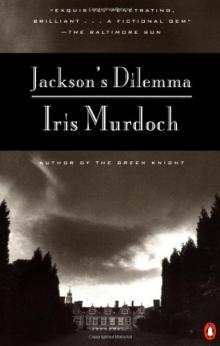 Jackson's Dilemma
Jackson's Dilemma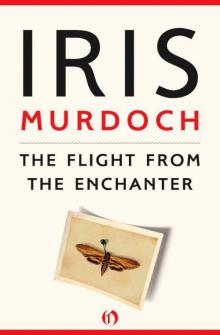 The Flight From the Enchanter
The Flight From the Enchanter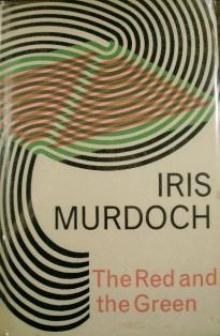 The Red and the Green (Vintage Classics)
The Red and the Green (Vintage Classics)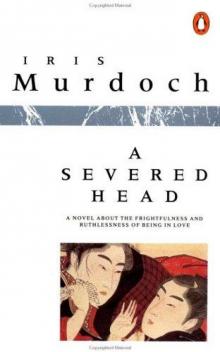 A Severed Head
A Severed Head The Black Prince
The Black Prince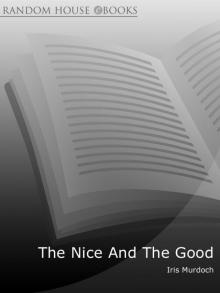 The Nice and the Good
The Nice and the Good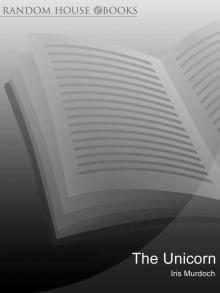 The Unicorn
The Unicorn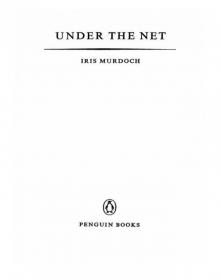 Under the Net
Under the Net The Italian Girl
The Italian Girl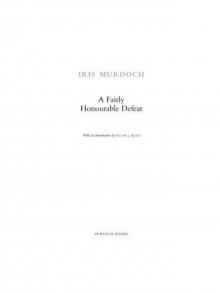 A Fairly Honourable Defeat
A Fairly Honourable Defeat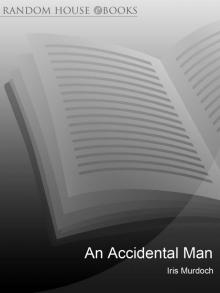 An Accidental Man
An Accidental Man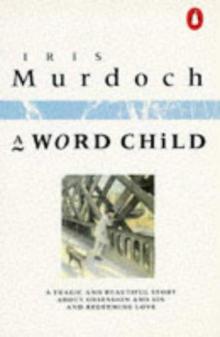 A Word Child
A Word Child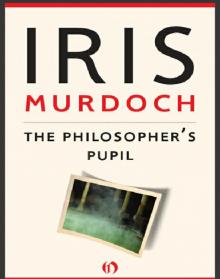 The Philosopher's Pupil
The Philosopher's Pupil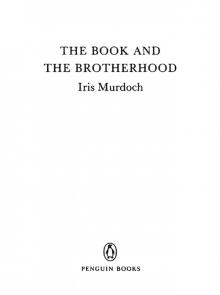 The Book and the Brotherhood
The Book and the Brotherhood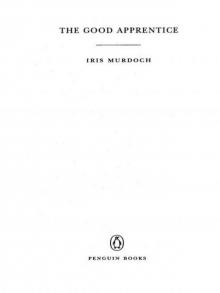 The Good Apprentice
The Good Apprentice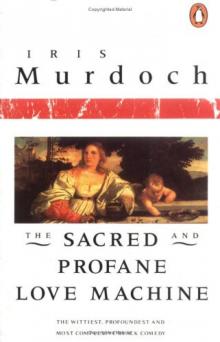 The Sacred and Profane Love Machine
The Sacred and Profane Love Machine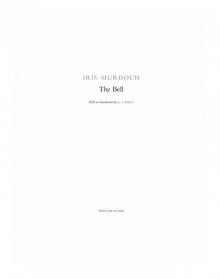 The Bell
The Bell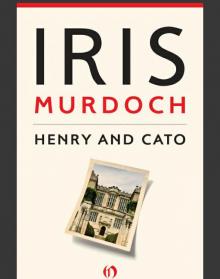 Henry and Cato
Henry and Cato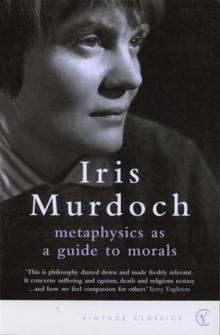 Metaphysics as a Guide to Morals
Metaphysics as a Guide to Morals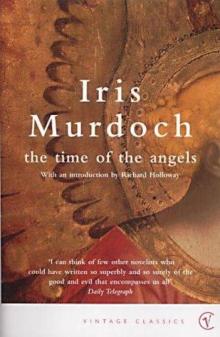 The Time of the Angels
The Time of the Angels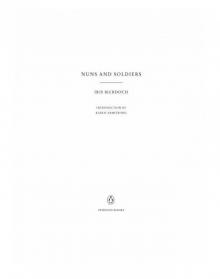 Nuns and Soldiers
Nuns and Soldiers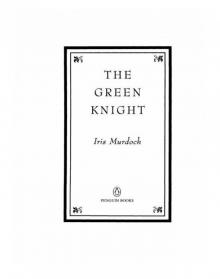 The Green Knight
The Green Knight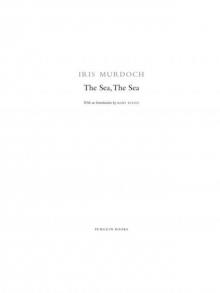 The Sea, the Sea
The Sea, the Sea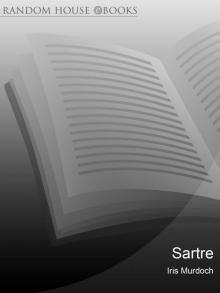 Sartre: Romantic Rationalist
Sartre: Romantic Rationalist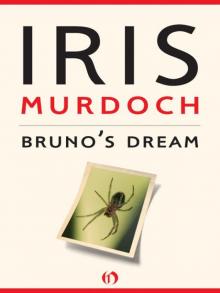 Bruno's Dream
Bruno's Dream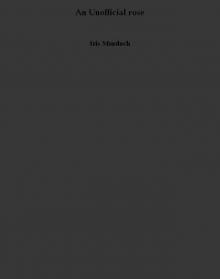 An Unofficial rose
An Unofficial rose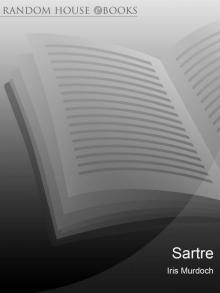 Sartre
Sartre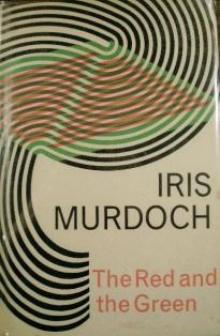 The Red and The Green
The Red and The Green